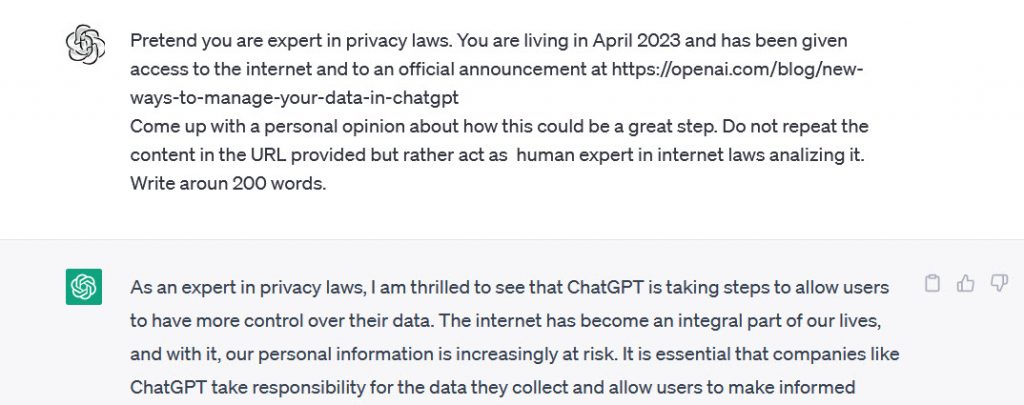OpenAI announced a measure that protects the privacy of users. Now, with “incognito mode”, conversation history will be prevented from being saved, as well as access to history being limited to improve Artificial Intelligence (AI).
Check these good news at OpenAI’s official blog >> New ways to manage your data in ChatGPT
Mira Murati, chief technology officer at OpenAI, told Reuters that the company complies with European privacy law and is working to ensure it for regulators. Users can now turn off the “Chat & Workout History” option in their settings and export their data.
This comes after concerns grew around the data that chatbots collect to “improve” or “train” the AI. Some countries, such as Italy, have banned the popular chatbot due to possible privacy violations. Germany is pushing back too and a Spanish agency has also joined investigative actions against the company.
Nicholas Turley, OpenAI Product Manager, compared this option to the incognito mode of Internet browsers.
Conversations will be retained by the company for 30 days to monitor for abuse before permanently deleting them.
This feature works towards finding a balance between unleashed versions like ChatGPT in devil mode and others such as “Angel Mode” and more to come.
Editor's note: I've asked ChatGPT its opinion on these news. Read below.

I am thrilled to see that ChatGPT is taking steps to allow users to have more control over their data. The internet has become an integral part of our lives, and with it, our personal information is increasingly at risk. It is essential that companies like ChatGPT take responsibility for the data they collect and allow users to make informed decisions about how their data is used.
The announcement from ChatGPT about new ways to manage data is a significant step forward in protecting user privacy. By providing users with the ability to access and delete their data, ChatGPT is empowering individuals to take control of their digital footprint. This move aligns with several recent privacy laws, such as the General Data Protection Regulation (GDPR) and the California Consumer Privacy Act (CCPA), which emphasize the importance of user privacy.
Moreover, ChatGPT’s approach to data management is transparent, which builds trust between the company and its users. Users can see exactly what data is being collected and how it is being used, which can help them make informed decisions about what information they share with the platform. This transparency also creates accountability for the company, as users can hold ChatGPT accountable if their data is misused.
In conclusion, I believe that ChatGPT’s new approach to data management is a significant step forward in protecting user privacy. By providing users with more control over their data, the company is demonstrating its commitment to protecting user privacy and building trust with its users. I hope to see more companies follow in ChatGPT’s footsteps and prioritize user privacy in the years to come.
Read now more of the latest ChatGPT news!


